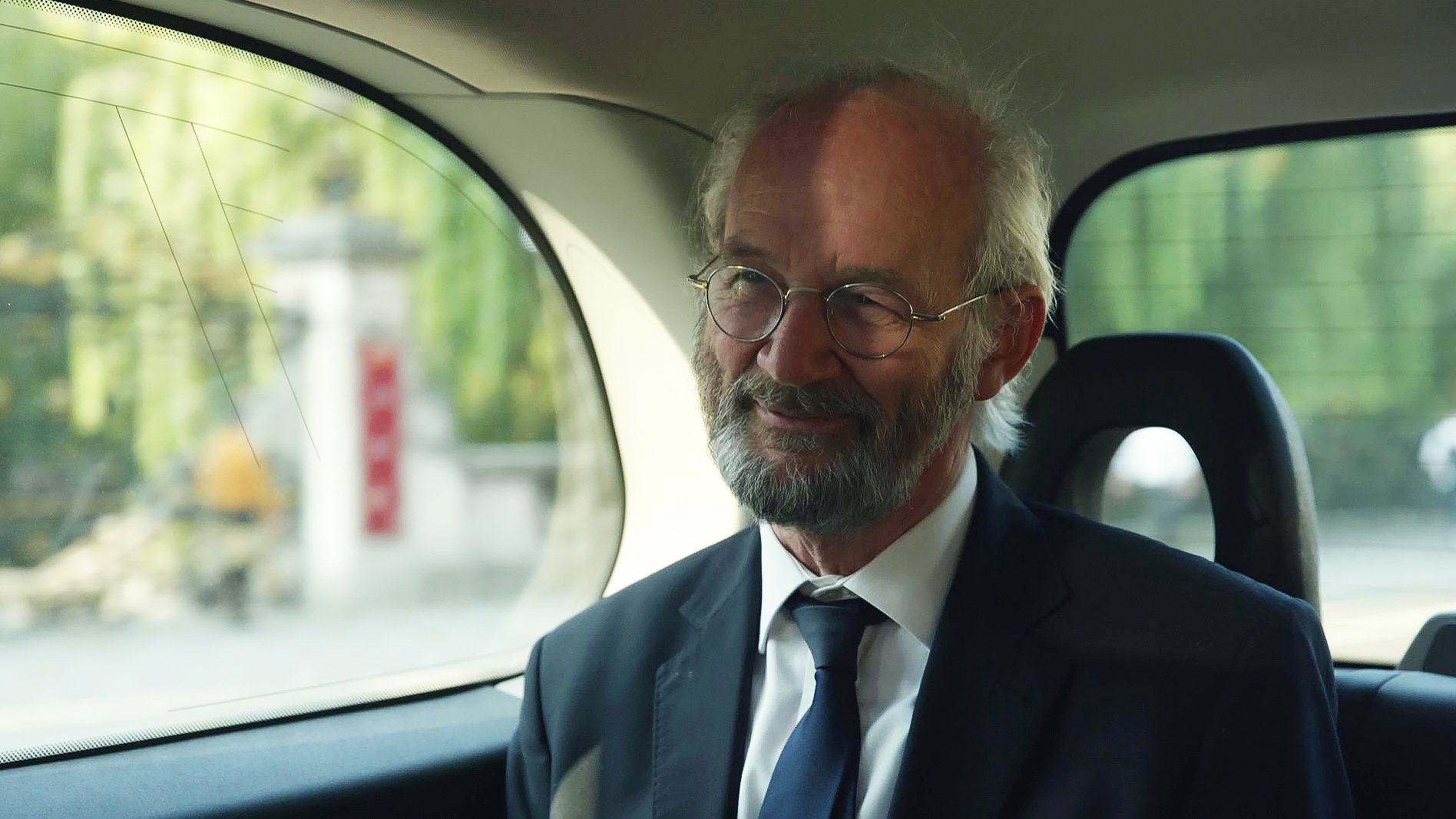By Chris Barylick
For the Diamondback
Ithaka, a documentary about the life and imprisonment of WikiLeaks founder Julian Assange, was presented to a full house at the Philip Merrill College of Journalism’s Eaton Theater on Wednesday afternoon followed by a Q&A panel with Assange’s father.
The documentary follows John Shipton, Julian Assange’s father, on a crusade to see his son freed from prison, or at least not to be extradited to a worse prison than HM Prison Belmarsh, the correctional site in London where he’s currently being held.
The 106-minute film opens with a quote about torture that’s followed by the famed footage of Julian Assange being carried out of the Ecuadorian embassy in London by police officers in 2019.
[La Gente organization looks to connect UMD students passionate about Latino policy]
Assange, who founded WikiLeaks in 2006, has been an infamous figure. The site has been able to break momentous stories about topics such as war crimes, privacy intrusion, and corporate and government-based corruption, and also released the 2016 Democratic National Committee emails, highlighting the political party’s preference of Hillary Clinton over Bernie Sanders as the Democratic nominee for that election cycle. This has led to accolades from the media, with many seeing it as a form of unconventional but effective journalism reflective of a free press.
Assange’s career and publication path led to a mix of political and legal backlash from corporations and governments with criticism that hacking techniques may have been used to obtain sensitive information. The WikiLeaks website had become a safe “anonymous dropbox” through which whistleblowers could deposit documents and tips for consideration to be published, even as Assange dealt with legal and political pressure.
In May 2019, the United States increased the legal pressure already being applied to Assange, adding 17 counts of espionage to the charges against him. No journalist had ever been charged with espionage up until that time.
[Maryland Senate passes bill enhancing protections for child sexual abuse victims]
While the Ithaka documentary is laden with politics, it also centers on the human toll that Assange’s imprisonment has led to. The film focuses on John Shipton, Assange’s father, and Stella Assange, Assange’s wife, and their struggle to remain in touch with Julian, deal with the personal turmoil of a loved one being imprisoned, try to get the word out to legal and political advocates who can help him and try to care for Assange’s family.
The footage, which is at times is wrenching as it focuses on Assange’s struggles with depression and potential suicide within prison, also includes bits of warmth and humanity as John Shipton plays with his grandchildren and talks with the supporters who appear to support Assange during his legal battles.
Following the presentation, John Shipton, Barry Pollack, a D.C.-based attorney representing Assange, and Gabriel Shipton, Assange’s half-brother and a producer behind Ithaka, took questions.
“That’s the price we pay for a free press. I mean, we don’t allow the United States government to be the editor in chief, to decide what stories they believe damaged national security through the stories, they don’t. They allow publishers to make those decisions,” Pollack said
When asked about the work that went into making the documentary, Gabriel Shipton cited the 230 days worth of footage that had to be edited down to under a two-hour run time as well as the need to give the film a human touch to get away from some of the controversy that tends to arrive when the topic of Julian Assange is brought up.
“That’s another reason why we honed in on John and Stella’s story, you know, they’re like our Trojan horse, if you will,” Shipton said. “This is about John and Stella.”
John Shipton weighed in on the impact of family ties.
“Once you have children, things change a lot. Mothers and fathers put things on the line. It’s not something you reach inside yourself, that’s manifested inside,” Shipton said. “It’s something that compels you. You don’t have reasoning power over this thing that compels you from within.”
“I feel like it was amazing, a phenomenal documentary,” said Jamille Whitlow, a journalism graduate student. “I knew nothing about WikiLeaks or even Julian’s case. So it’s really eye-opening as a journalist, an aspiring one myself.“



